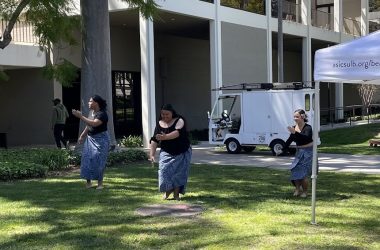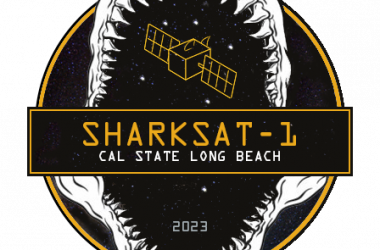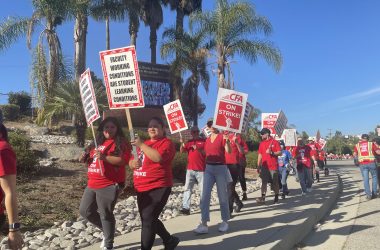For many Cal State Long Beach students, extracurricular studies rarely include studying case law or participating in mock trials at local courthouses on the weekends. But for students in CSULB’s moot court program, it’s just another week.
At the 2009 American Collegiate Moot Court Association’s national tournament, held Jan. 16 through17 at Chapman University, their hard work paid off. The three teams of two included Heather Pegg, a senior political science major; Tim Appelbaum, a senior marketing and management major; Laila Nikaien, a junior political science major; Reema Aboud, a sophomore journalism major; Nicole Wilson, a junior political science major; and Edgar Gutierrez, a junior political science and history major.
Pegg and Appelbaum placed 15th at finals, but Pegg added that they had reached their goal of making it into the “Sweet 16.”
“It was a great success … and we put up a pretty good fight,” Pegg said about being knocked out by the tournament’s winning team, Patrick Henry College.
This was the first time in the program’s seven-year history that three CSULB teams received automatic bids in the western regional to the national tournament.
CSULB was one of the 64 teams in the nation to compete in the simulated appellate court trial where they were judged on 20 minutes of combined oral argument, in which they must prove their knowledge of the case.
Contestants studied the same case but did not know what side they would be arguing for until the competition. The national tournament’s trial was a hypothetical case concerning free speech on a college campus. Students adhered to a demanding schedule of preparation –scrimmages, self-assessment through video and familiarizing themselves with 21 other cases that would help strengthen their argument. In turn, there are 800 other cases cited within those 21.
“I was excited for [the national tournament,” Nikaien said. “We worked really hard for it and it paid off.”
The teams are evaluated by panels of judges, attorneys, professors and law students in four categories: knowledge of the case law, demeanor within the court room, forensic skills and response to questioning by panelists.
In 2006-07, coordinators of the national tournament altered the way teams were seated, or organized to compete against each other, making the competition even fiercer.
“This is the best since [the national tournament] went to an invitational system,” said Lewis Ringel, a political science professor and director of CSULB’s moot court program.
Ringel added that he is cautiously optimistic for the 2009-10 moot court program starting in May. Many of last year’s students are returning to compete. The 2008-09 was one of the first years without any veteran competitors, but Ringel suspects his returning students will only improve that much more.
“It demands so much work but it’s a rewarding experience,” Gutierrez said.



